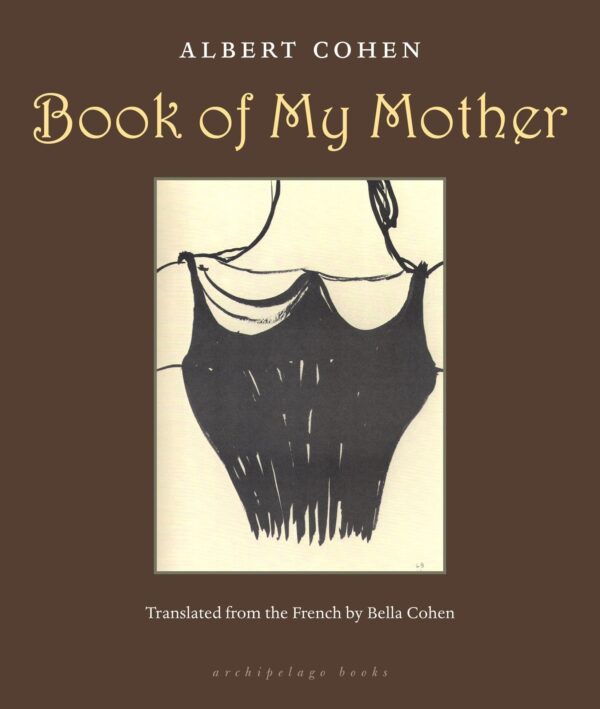
Book of my mother by Albert Cohen
Swiss memoir
Original title – Le Livre de ma mère
Translator – Bella Cohen
Source – personnel copy
I was flicking through amazon the other day trying to find something that had passed me by that was also cheap and this gem from Archieplago books popped up and was under three-pound for a new copy (i think this was an error but I clicked and brought it ).Albert Cohen is maybe best known for his book Belle de Seigneur one best-selling books of its time in France. He was a writer and editor in France before the second world war working for the Jewish review. Albert Cohen like a number of other Jewish artist and writers managed to get out of France in 1940 and get to London. In this time away his mother passed away in 1943 and he met his third wife Bella the translator of this book. This book is a collection of vignettes he wrote about his mother for La France Libre he later won the a number of french book prizes .
We had our sunday outings in the summer too, when I was a small boy.We were not rich, but the tram ride round the cliff road overlooking the sea cost only fifteen centimes. Those one-hour rides wee our summer holidays, our social life , and our hunting expeditions. There we were my mother and I, fragile, well dressed and loving enough to outdo god. I well remember one of those Sunday outings.
The tram trip was the holidays they were that poor
This is one sons touching view of his later mother , her as a person , them as people , the life they lead , the loss of her on him and the loss of that world. He started these piece after his mother passed a sort of collection of memories , thoughts and outcry of pity at the loss of his mother without being there. His mother is one of those women that through his eyes seems proud in herself the way she holds her self , they have no money but she dresses her self . The trip in the tram on a coast road in the summer meant so much, was worth more than anything for the sea air they were able to breathe. Then the later parts deal with his loss of his mother a reflection of a sons love and guilt at not being there when she passed.
Sons of mothers who are still alive, never again forget that your mother are mortal. I shall not have written in vain if one of you, after reading my song of death is one evening gentler with his mother because of me and my mother. Be gentle with your mother each day. Show her more love than I showed my mother.Give your mother some happiness each day,that is what i say to you with the right accorded to me by regret; that is the grave message of a mourner.
I was touched by these lines it made me think of my own mother .
This is a book of love but also guilt . That special bond mothers and sons can have Cohen brings her to life as a caring mother making the best of not being in the best position in life. The way she made him value the simple things the way he talks about the trip in the bus a simple cheap thing to do, but she made him think it meant so much more. I loved this work it brings a tear to the eye as we see Albert doing the journey of grief not quite the five steps but in writing the way he looked at her you see him coming to terms with the world without her. This is like the works of Sebald one that leaves the reader wanting more and maybe want to call your own mother isn’t that what all good prose should do !





